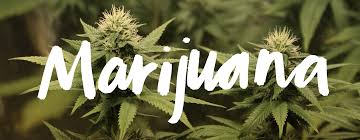While the liberal government in Canada gets ready to make recreational marijuana legal in the country starting this summer, the greatest challenge to the plan would be to counter the competition from a triving black market, says cannabis investors, researchers, policy analysts and government data.
Hedge fund GTV Capital which is the exclusive investor to cannabis stocks in Canada and Marijuana Policy Group, a U.S. research firm, says that because of the fact that legal cannabis would not be widely available and would be costlier than marijuana available black market, there would be little incentive for many buyers to shift form the black market to the legal cannabis market.
For other coutnries that are also thinking on similar line with regards to cannabis would be closely monitoring the developments in Canada – which is the first major economy to legalize the sale of recreational cannabis. Additionally, investors globally would also be keeping a close eye on the developments as many have already made investments of billions into Canadian marijuana companies.
It was way back in 2001 that marijuana sale was legalized in Canada but it is only available through mail order services from government listed firms. This has given rise to opening of many unsanctioned retailers.
There are plans by many provinces to initially restrict the number of government operated or licensed firms even though the illicit companies selling marijuana would be major competitors of the legal stores. However, marijuana used for medicinal purposes would still opnly be available through mail order systems even though there are a number of major pharma companies that are pushing the government to allow sale through physical medical stores.
Statistics Canada estimates that the market for legal cannabis was as much as C$5.7 billion in 2017 but there can be lack of interest to invest in the new plan because of the cautious approach of the government. The agency has further found that an average of C$1,200 per person at C$7.48 per gram is spend by about one fifth of all Canadians aged between 15 and 64 years on marijuana. The agency also estimates that 90 per cent of that money was spent illegally.
Public benefits of legalization of marijuana would be affected if the higher price of legal marijuana allows the black market to compete. The Canadian government expects that legalization of cannabis would lead to more investments, job creation and tax revenue. The competition between legal and illegal marijuana would also curb efforts to reduce crime related to illegal drug trafficking.
“Canada’s been brave enough to take the step to make cannabis fully legal, but they’ve also taken the stance that they don’t want to promote it,” said Steve Ottaway, managing director for investment banking at GMP Securities. “I can appreciate their intent, but at the same time, this is an adult-use market.”
The cautious approach of the government is aimed to reduce underage use of marijuana and cerate supply networks that are controlled by the government, conduct safety checks and legal processes before further expansion, said Mark Ware - a McGill University family medicine professor who served as vice-chair of the federal task force advising on the legalization.
(Source:www.reuters.com)
Hedge fund GTV Capital which is the exclusive investor to cannabis stocks in Canada and Marijuana Policy Group, a U.S. research firm, says that because of the fact that legal cannabis would not be widely available and would be costlier than marijuana available black market, there would be little incentive for many buyers to shift form the black market to the legal cannabis market.
For other coutnries that are also thinking on similar line with regards to cannabis would be closely monitoring the developments in Canada – which is the first major economy to legalize the sale of recreational cannabis. Additionally, investors globally would also be keeping a close eye on the developments as many have already made investments of billions into Canadian marijuana companies.
It was way back in 2001 that marijuana sale was legalized in Canada but it is only available through mail order services from government listed firms. This has given rise to opening of many unsanctioned retailers.
There are plans by many provinces to initially restrict the number of government operated or licensed firms even though the illicit companies selling marijuana would be major competitors of the legal stores. However, marijuana used for medicinal purposes would still opnly be available through mail order systems even though there are a number of major pharma companies that are pushing the government to allow sale through physical medical stores.
Statistics Canada estimates that the market for legal cannabis was as much as C$5.7 billion in 2017 but there can be lack of interest to invest in the new plan because of the cautious approach of the government. The agency has further found that an average of C$1,200 per person at C$7.48 per gram is spend by about one fifth of all Canadians aged between 15 and 64 years on marijuana. The agency also estimates that 90 per cent of that money was spent illegally.
Public benefits of legalization of marijuana would be affected if the higher price of legal marijuana allows the black market to compete. The Canadian government expects that legalization of cannabis would lead to more investments, job creation and tax revenue. The competition between legal and illegal marijuana would also curb efforts to reduce crime related to illegal drug trafficking.
“Canada’s been brave enough to take the step to make cannabis fully legal, but they’ve also taken the stance that they don’t want to promote it,” said Steve Ottaway, managing director for investment banking at GMP Securities. “I can appreciate their intent, but at the same time, this is an adult-use market.”
The cautious approach of the government is aimed to reduce underage use of marijuana and cerate supply networks that are controlled by the government, conduct safety checks and legal processes before further expansion, said Mark Ware - a McGill University family medicine professor who served as vice-chair of the federal task force advising on the legalization.
(Source:www.reuters.com)






